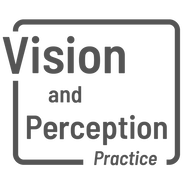
Please note that all screening and assessments will be carried out at the Vision and Perception Practice (the main branch).
Click here to book an appointment with us to schedule a screening or an assessment for you / your child / your ward.
INITIAL CONSULTATION & SCREENING
As everyone has different needs and cognitive profiles, all referrals will undergo an initial consultation and screening during their first visit.
- Duration: 40 minutes
- Cost: $150
- A short report is provided if no further assessment is indicated.
As everyone has different needs and cognitive profiles, all referrals will undergo an initial consultation and screening during their first visit.
- Duration: 40 minutes
- Cost: $150
- A short report is provided if no further assessment is indicated.
Upon request for a more detailed examination to investigate any red flags detected during the screening, one of the following assessments will be carried out in a subsequent appointment:
TYPES OF ASSESSMENTS
1. Learning-Related Vision Assessment
Target population
Such individuals typically struggle with the following issues:
Should there be any significant red flags detected during the screening, a vision efficiency assessment will be recommended to investigate binocular dysfunctions:
- Duration: 40 minutes
- A report will be provided.
- An assessment of these visual skills give insights to the Learning-Related visual skill of an individual. For example, a person who tracks 30 words per min is more likely to be unable to complete an exam compared to another person who is able to track 60 words per min.
2. Assessment for clients with complex neurological complaints
Target population
- A report will be provided.
3. Assessment for clients with lazy eyes and squints
Target population
4. General eye examination or myopia control
As the costs of each type of assessment varies, please contact us to enquire about the rates.
TYPES OF ASSESSMENTS
1. Learning-Related Vision Assessment
Target population
- Individuals - regardless of age - who face challenges in sustaining their literacy/academic/work performance.
- Common symptoms include poor copying (eye tracking & eye-hand coordination), losing their place as they read (eye tracking), difficulties with comprehension (poor near vision, eye teaming, visualisation difficulties) and many other symptoms.
Such individuals typically struggle with the following issues:
- Phorias
- Issues with coordination (e.g. DCD)
- Learning-related problems (e.g. dyslexia, autism, ADHD)
- A general challenge to compensate the aforementioned issues overtime.
Should there be any significant red flags detected during the screening, a vision efficiency assessment will be recommended to investigate binocular dysfunctions:
- Eye Tracking (Eye Movement)
- Eye Teaming (Convergence)
- Eye Focusing (Accommodation)
- Duration: 40 minutes
- A report will be provided.
- An assessment of these visual skills give insights to the Learning-Related visual skill of an individual. For example, a person who tracks 30 words per min is more likely to be unable to complete an exam compared to another person who is able to track 60 words per min.
2. Assessment for clients with complex neurological complaints
Target population
- Individuals who face challenges in daily functioning or socialisation due to congenital / developmental disorders (e.g. autism, cerebral palsy, down syndrome, GDD)
- Individuals who face challenges stemming from post-concussion, brain injuries, degenerative diseases and disorders of other nature.
- A report will be provided.
3. Assessment for clients with lazy eyes and squints
Target population
- Individuals who wish to undergo Vision Therapy to improve their visual conditions related to amblyopia (lazy eye) or strabismus/squint (crossed eyes)
4. General eye examination or myopia control
- Refractive errors (eg. Myopia, Hyperopia, Astigmatism)
- Anterior Eye Health (eg. Cornea, Conjunctiva, Lids)
- Posterior Eye Health (eg. Retina, Optic Nerve)
As the costs of each type of assessment varies, please contact us to enquire about the rates.
